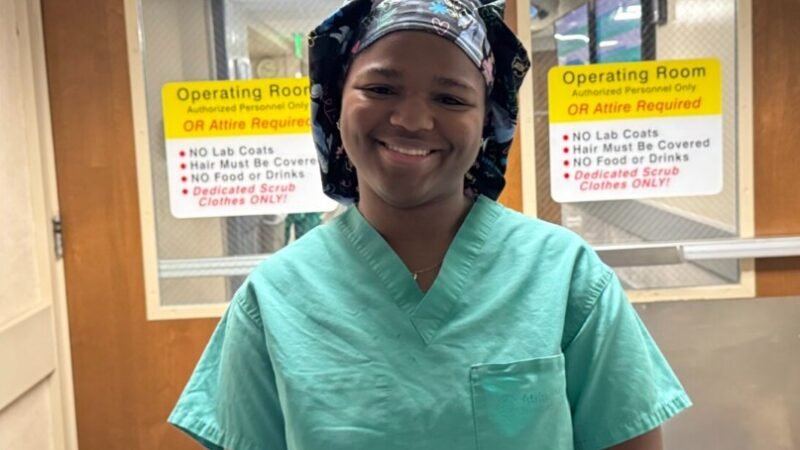Turning 45 in 2025? It’s Time for a Potentially Life-Saving Colonoscopy

For individuals born in 1980, 2025 marks not only their 45th birthday but also the year doctors recommend adding a potentially life-saving colorectal cancer screening to their health checklist.
March is National Colorectal Cancer Awareness Month, an important time to learn about this prevalent disease and understand personal risk factors. Colorectal cancer, encompassing both colon and rectal cancer, is the third most commonly diagnosed cancer and the second leading cause of cancer-related deaths among both men and women in the United States.
The impact of colorectal cancer is particularly significant in central Georgia, where the death rate of 14.8 per 100,000 people surpasses the national average of 13.7 deaths per 100,000.
Early detection through regular screenings is crucial for improving treatment outcomes and survival rates. Atrium Health Navicent recommends that individuals of average risk begin colorectal cancer screenings with a colonoscopy at age 45. To help individuals understand their personal risk, Atrium Health Navicent now offers a new online risk assessment tool that provides an individualized report after answering a few questions.
“Colorectal screenings, which can detect precancerous, abnormal growths before they turn into cancer, are a vital tool that’s helping patients live longer, fuller lives,” emphasized Dr. David Armstrong, a surgical oncologist at Atrium Health Navicent.
Dr. Armstrong further explained, “Sometimes, patients won’t experience symptoms of colorectal cancer until it’s become advanced. And the rate of relatively young people being diagnosed with the disease is increasing. It’s important to talk with your doctor about your family history and follow through with having a colonoscopy every 10 years if you’re 45 or older, or possibly earlier or more frequently if you have additional risk factors.”
A colonoscopy involves using a scope to examine the entire colon for any abnormal growths or polyps. These polyps can be removed during the procedure, preventing potential development into colon cancer.
Atrium Health Navicent highlights six key facts about colonoscopies:
- Preparation is Key: Following the provided bowel prep instructions is crucial for a thorough and accurate examination.
- Relatively Quick: The entire process, from arrival to discharge, typically takes around four hours, with the actual procedure lasting about 45 minutes.
- Painless Procedure: Patients are fully asleep and feel nothing during the colonoscopy due to IV anesthesia.
- Immediate Removal of Abnormalities: If any precancerous or abnormal growths are found, they can usually be removed immediately during the procedure, potentially avoiding a second appointment.
- Private Recovery and Consultation: After waking up, patients recover in a private room where medical staff will discuss the results and answer any questions.
- Normal Diet Resumes Quickly: Digestion returns to normal shortly after the procedure, allowing patients to resume eating and drinking immediately after discharge.
For those diagnosed with colorectal cancer, the Atrium Health Navicent Peyton Anderson Cancer Center offers comprehensive, multidisciplinary care, including minimally invasive robotic and laparoscopic surgical options performed by experienced surgeons. The center holds accreditation from the National Accreditation Program for Rectal Cancer (NAPRC), signifying its commitment to providing the highest quality care.
For more information about screenings for colon cancer, or to find a doctor, visit www.NavicentHealth.org and click “Find A Doctor.”






